“A Commonplace is not a Cliché”
July 9–10, 2021
Symposium with accompanying workshops, scenography, and film installation.
Convenors: Christoph Chwatal & Lisa Stuckey
Speakers: Mirela Baciak, Christoph Chwatal, Elke Krasny, Sven Lütticken, Viktor Neumann, Karina Nimmerfall, Lisa Stuckey, Simon Strick, Karen van den Berg
Szenography: Diane Hillebrand
Film installation: Michel Auder, May ´68 in ´78 (1978/2019)
Symposium: July 10, 2021, Basler Hof, Freiburg
Workshops: July 9, 2021, with Hanne König & Claudia Barth, Lou von der Heyde & Daniel Vollmer, Ronja Andersen & Marius Schwarz
Context: Biennale für Freiburg, invited by Leon Hösl, in collaboration with HfG Karlsruhe
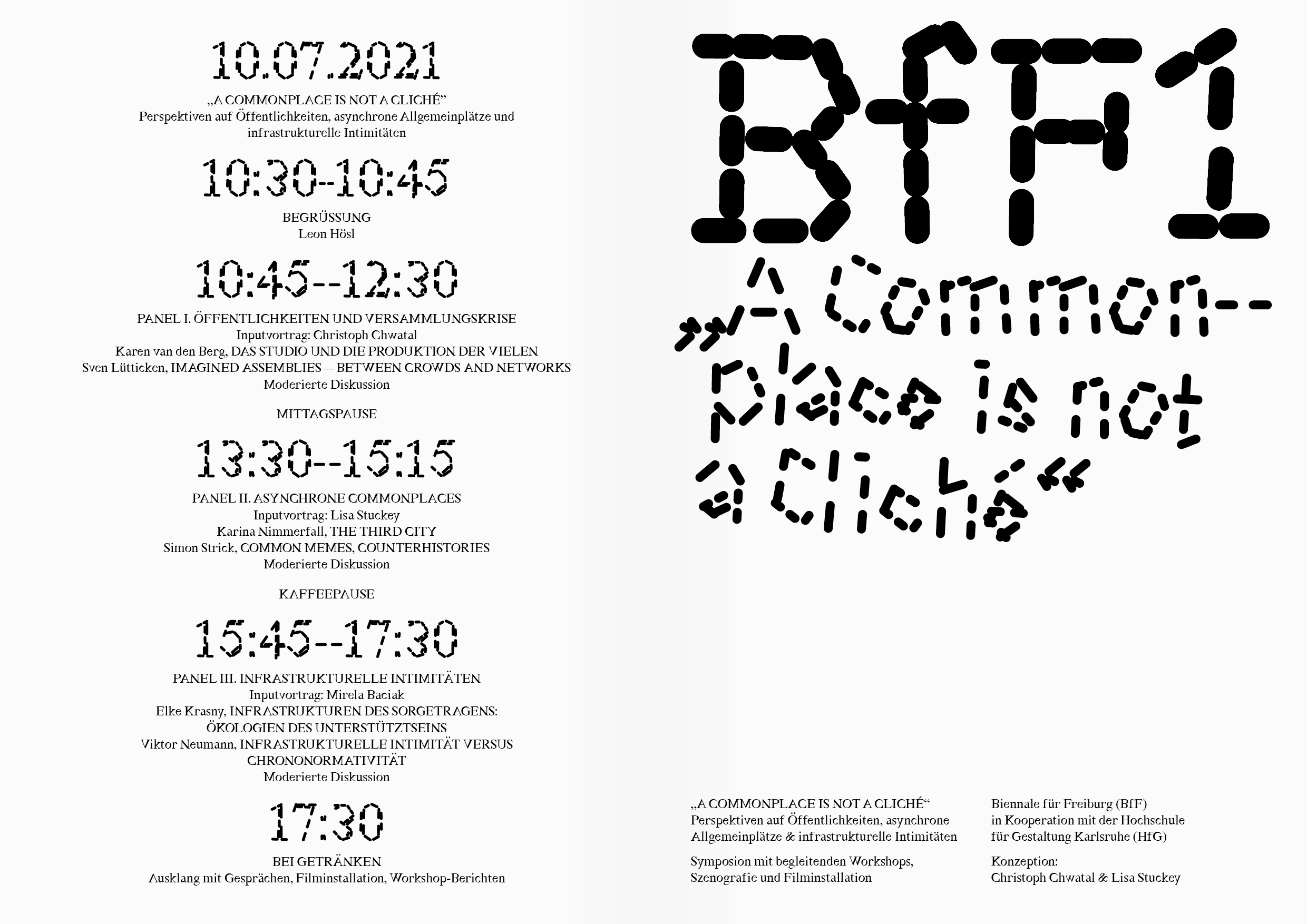
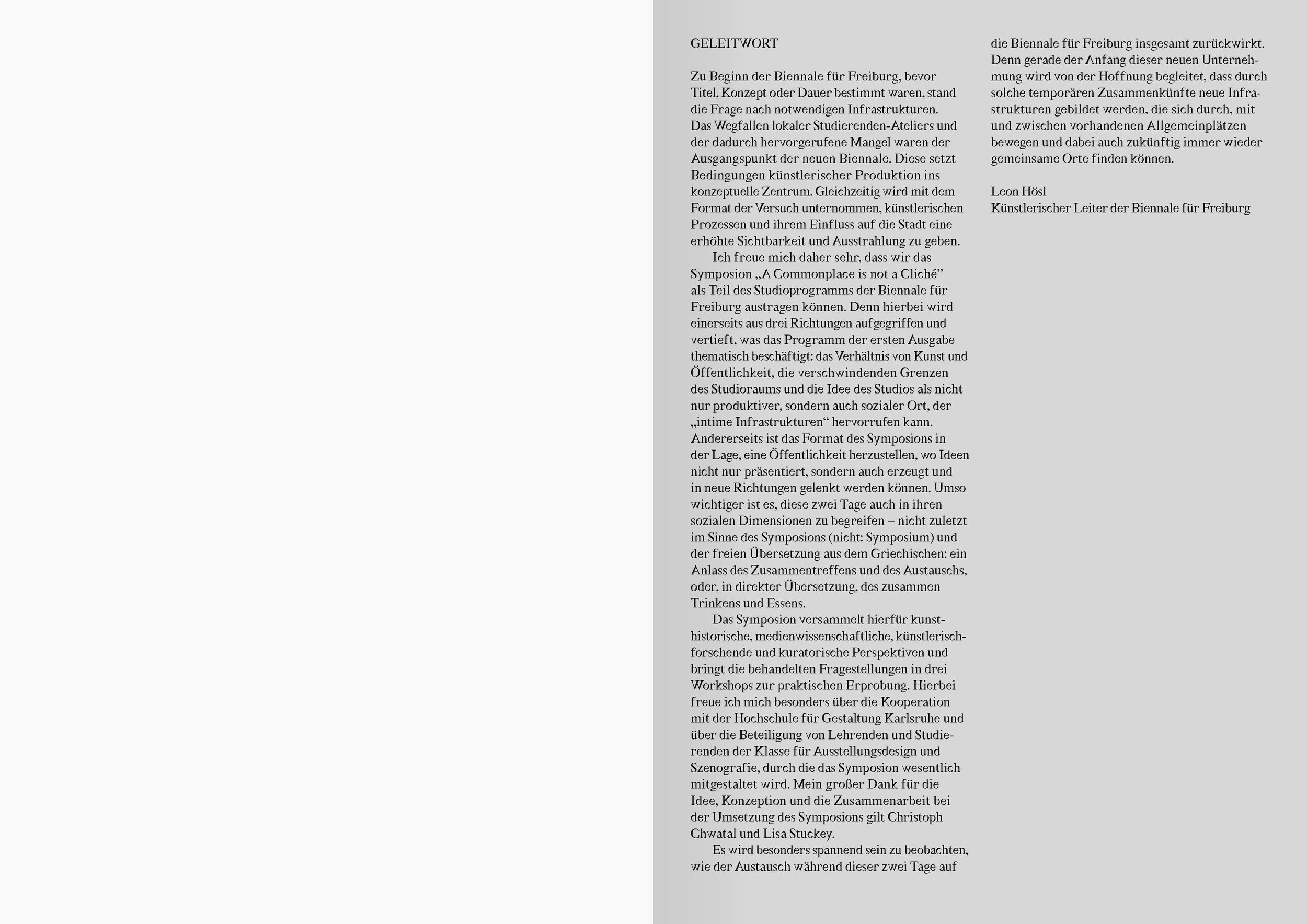
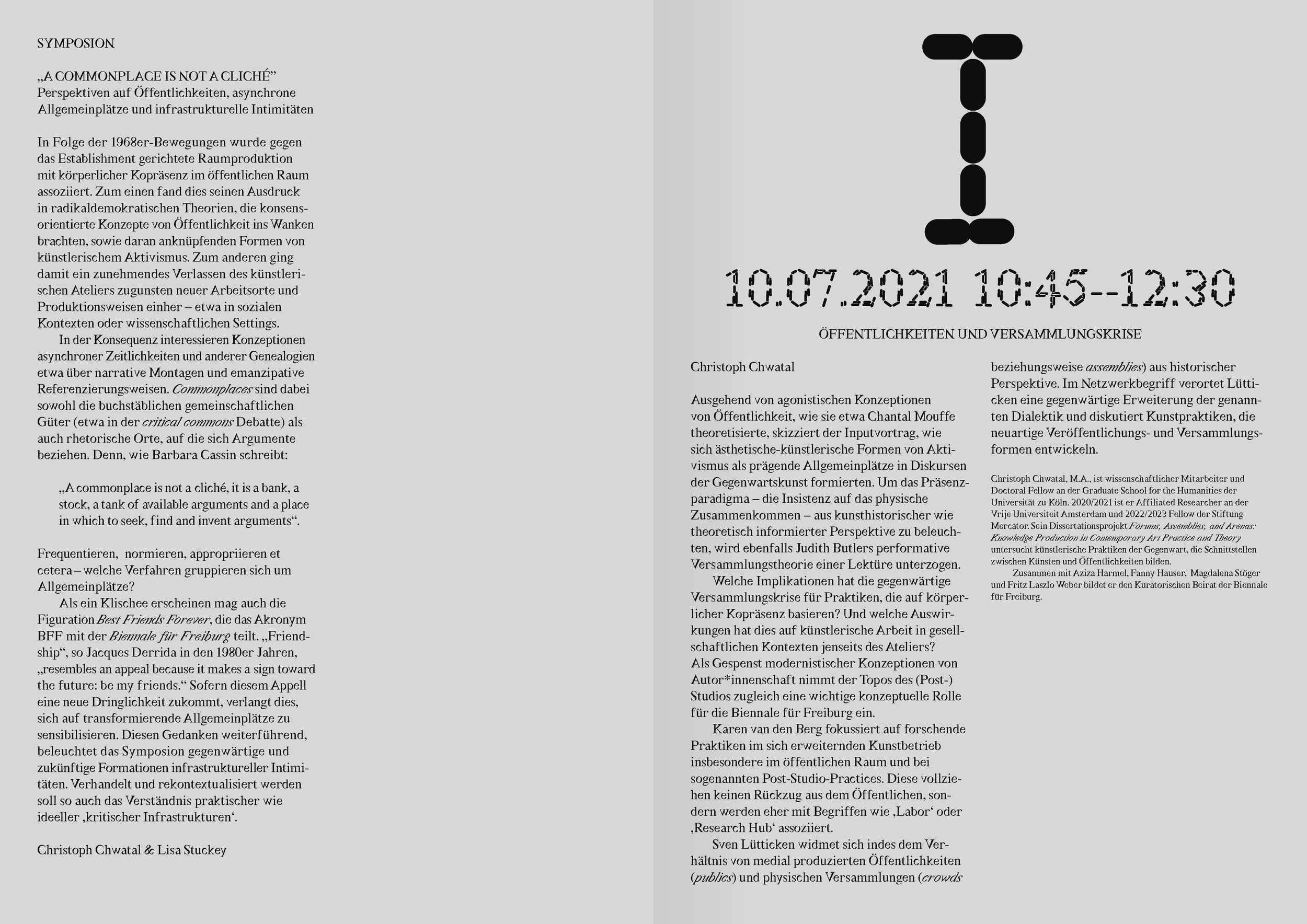
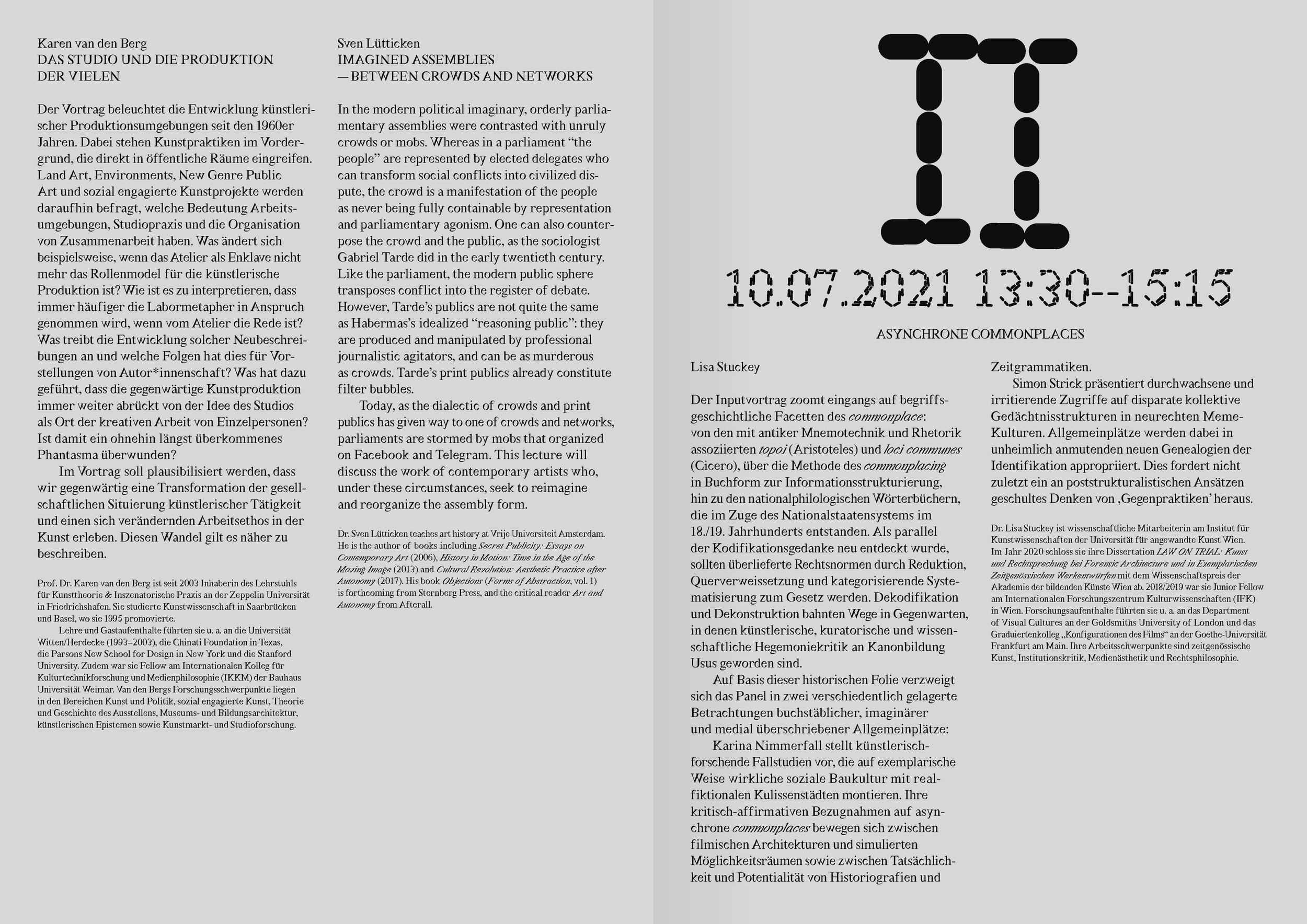
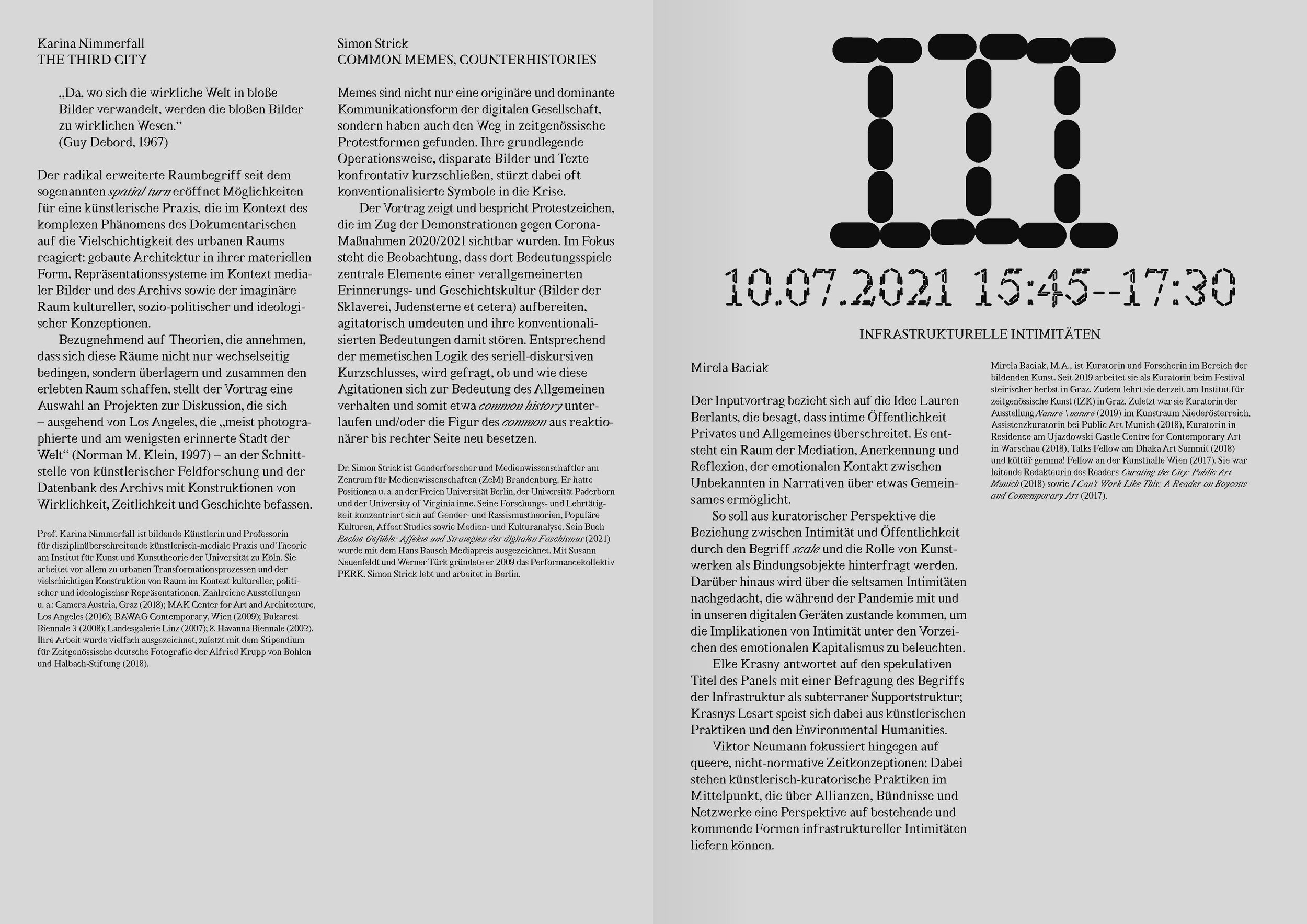
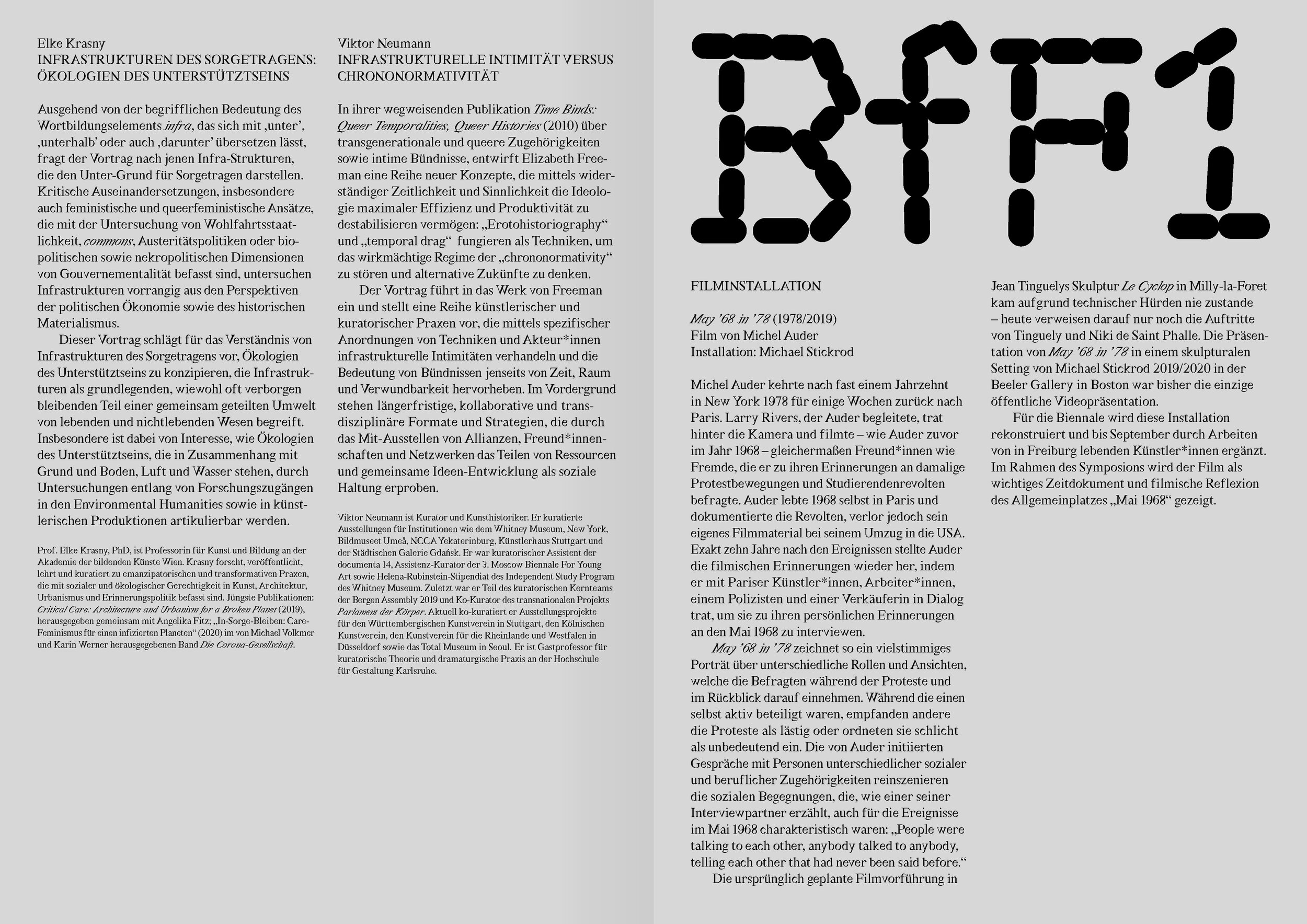
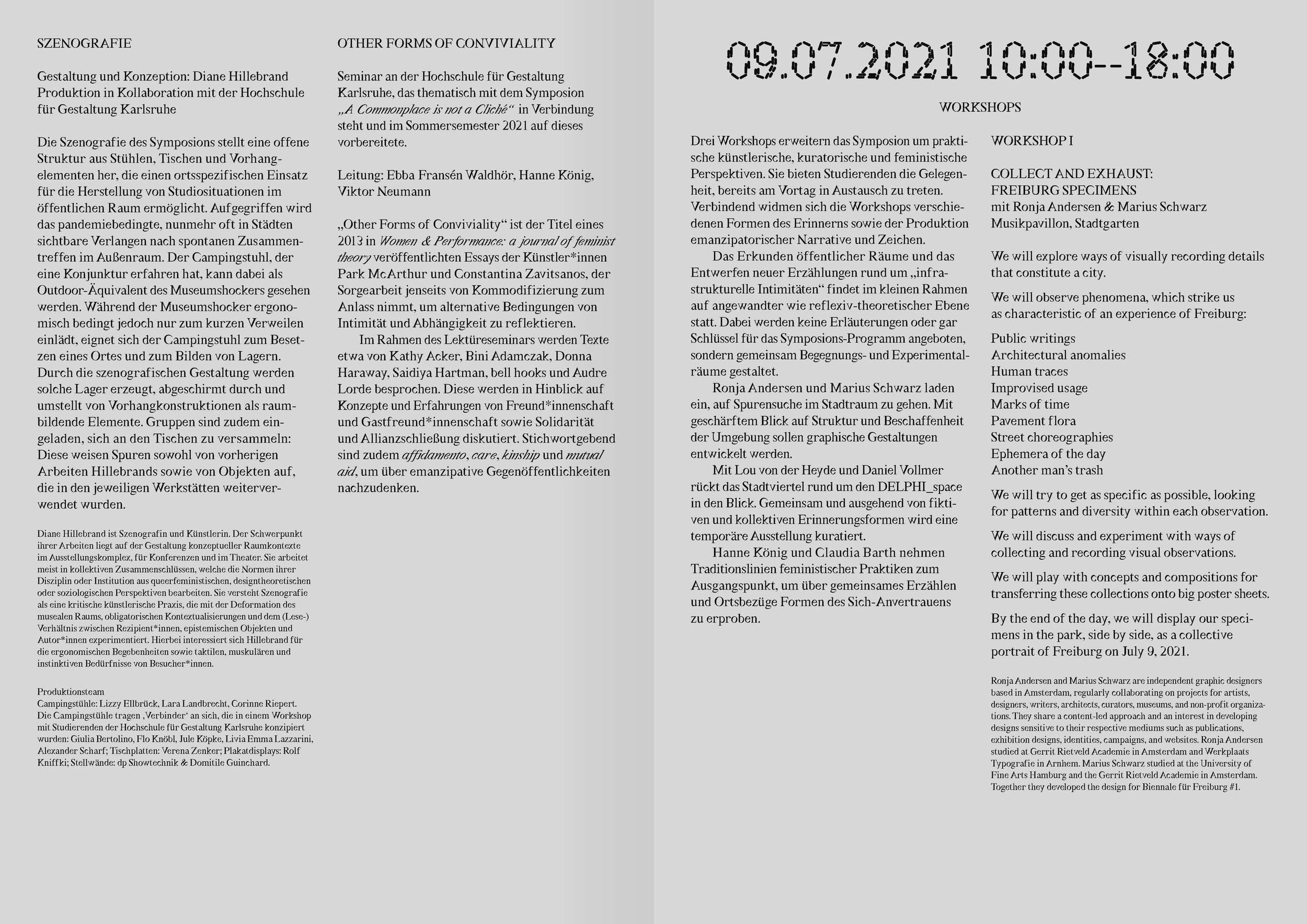
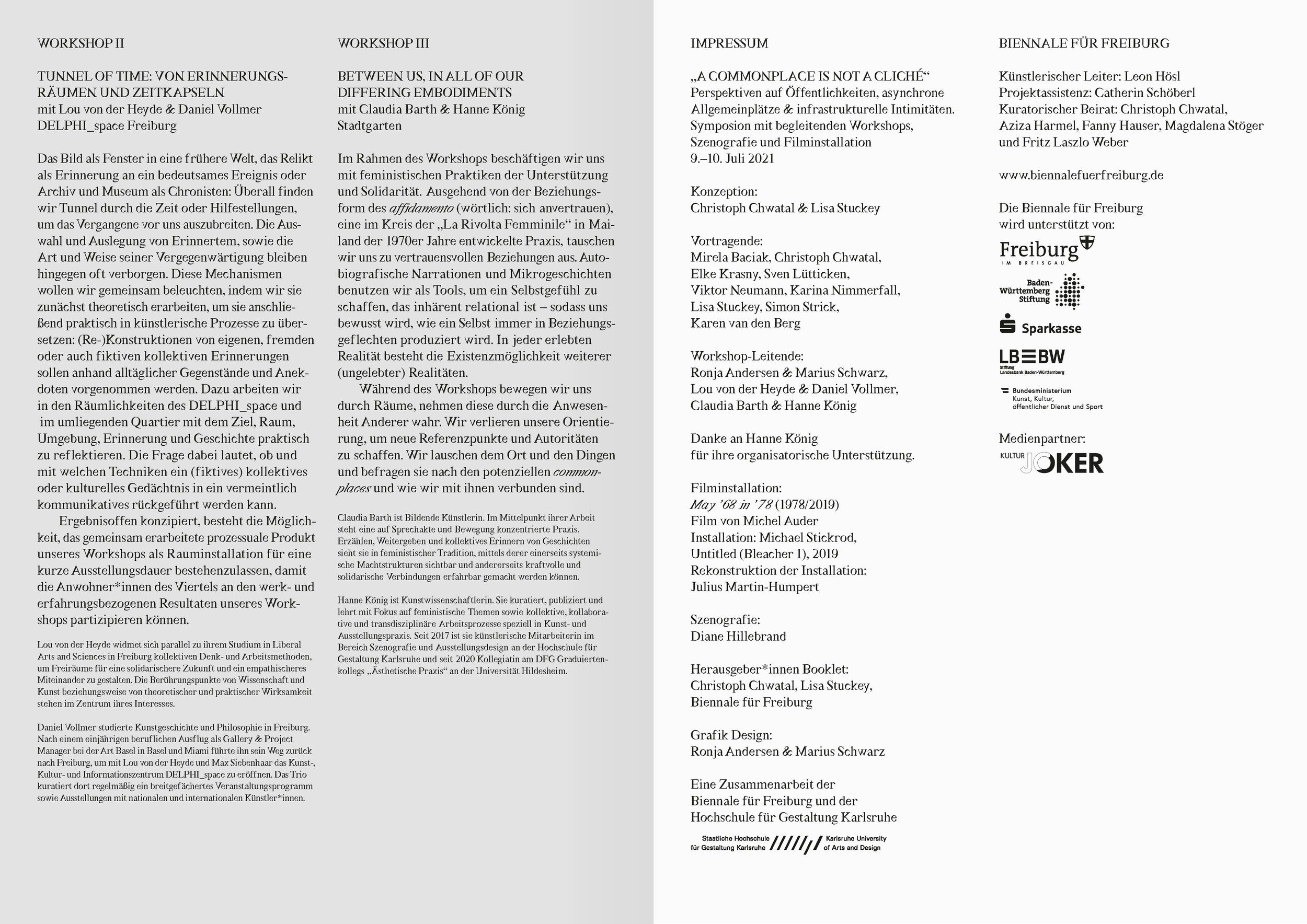
In the wake of the anti-establishment movements of 1968, spatial production became increasingly associated with public bodily co-presence. On the one hand, this resonated with radical democratic theories, which challenged consensus-oriented notions of public spheres, as well as with related forms of artistic activism. On the other hand, this association was accompanied by an abandonment of the artist’s studio in favor of new workplaces and modes of production, such as those in social contexts or scientific settings, for example.
Conceptions of asynchronous temporalities and other genealogies are therefore of interest to the symposium, for instance via narrative montages and emancipative ways of referencing. Commonplaces are analyzed as the literal communal goods in addition to rhetorical places to which arguments refer. For, as Barbara Cassin states, "A commonplace is not a cliché, it is a bank, a stock, a tank of available arguments and a place in which to seek, find and invent arguments." Frequenting, standardizing, appropriating, et cetera — which procedures and methodologies are grouped around commonplaces?
The figuration Best Friends Forever, which shares the acronym 'BFF' with the Biennale für Freiburg, may also appear as a cliché. "Friendship," Jacques Derrida wrote in the 1980s, "resembles an appeal because it makes a sign toward the future: be my friends." Insofar as this appeal currently bears a renewed urgency, it necessitates awareness of transforming commonplaces. Taking this idea further, the symposium illuminates present and future manifestations of infrastructural intimacies. The understanding of both practical and imaginary 'critical infrastructures' will be negotiated and recontextualized.
Christoph Chwatal & Lisa Stuckey
Photos: Karolina Sobel





